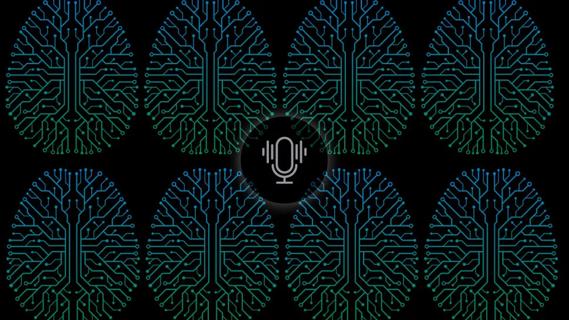How a Cleveland Clinic/IBM quantum computer partnership aims to hasten discoveries
Advertisement
Cleveland Clinic is a non-profit academic medical center. Advertising on our site helps support our mission. We do not endorse non-Cleveland Clinic products or services. Policy
Podcast content: This podcast is available to listen to online.
Listen to podcast online (https://www.buzzsprout.com/2243576/13534467)
The IBM Quantum System One was installed on Cleveland Clinic’s main campus in March 2023 as part of a 10-year partnership between Cleveland Clinic and IBM called the Discovery Accelerator. It’s the first quantum computer in the world dedicated to biomedical research. The partnership will be organized around three pillars: high-performance computing, artificial intelligence and quantum computing.
“All of these technologies can really change the way we do things,” says Lara Jehi, MD, a neurologist in Cleveland Clinic’s Epilepsy Center who also serves as Cleveland Clinic’s Chief Research Information Officer and the Discovery Accelerator executive program lead. “They represent an invitation for us to dive deeply into discovery and see where it takes us.”
In the most recent episode of Cleveland Clinic’s Neuro Pathways podcast, Dr. Jehi discusses how quantum computing can be harnessed to hasten biomedical innovations. She shares:
Click the podcast player above to listen to the 28-minute episode now, or read on for a short edited excerpt. Check out more Neuro Pathways episodes at clevelandclinic.org/neuropodcast or wherever you get your podcasts.
This activity has been approved for AMA PRA Category 1 Credit™ and ANCC contact hours. After listening to the podcast, you can claim your credit here.
Advertisement
Podcast host Glen Stevens, DO, PhD: Quantum computing can be harnessed for incredibly complex projects, yet is still in its very nascent phase. Tell us a bit about how its current capabilities are being used, specifically at Cleveland Clinic.
Dr. Jehi: We have several projects going on now using the quantum computer. In general, you can think of it as serving three different types of scientific questions. There is the quantum simulation, there is the quantum machine learning applications and then there is quantum optimization.
Quantum simulation is when you have problems where you need to go from a formula on paper to a structure that you can look at in space. This is fundamental for drug discovery. You start with the chemical formulation of what a compound could look like, but before you can develop it into a drug that is usable, you have to either make it and then test it, or you have to simulate what that formula would look like in space and then simulate the experiments that tell you how that drug would fit with receptors in the body.
That simulation requires many computational paths that have to go in parallel to be complete, and traditional computers get stuck on that. They’re limited in how much they can simulate. Quantum computers do this more efficiently. We have quantum simulation projects that are going on now. For example, one was just recently funded by the Wellcome Leap organization to look at how we can simulate protein folding using the quantum computer. That pretty much is along the drug discovery path.
Advertisement
Quantum machine learning is a field where we are taking all the models that get stuck in their predictive accuracy despite applying the best AI technology that is out there. Then quantum helps with improving the accuracy or reducing the number of features. For example, in imaging there are so many different aspects of an MRI that you can include in your model to come up with a prediction. The more features you include, the more complex the computation is going to be. Quantum can help with reducing the number of features so that you don’t have to test a thousand different things to come up with a result. You can test much less.
Quantum optimization is helpful in clinical trials. It can help us design those trials better and make them more efficient so that they can be completed faster.
Advertisement
Advertisement

Advanced software streamlines charting, supports deeper patient connections

Cleveland Clinic uses data to drive its AI implementation strategy

Cleveland Clinic and IBM leaders share insights, concerns, optimism about impacts

Customized bots improve speed, efficiency by streamlining daily clinical, clerical tasks

Cleveland Clinic neuromuscular specialist shares insights on AI in his field and beyond

Neurology is especially well positioned for opportunities to enhance clinical care and medical training

How technology is changing how and whom we hire

Discovery Accelerator Partnership with IBM Deploys Advanced Computing Technologies to Supercharge Healthcare Research